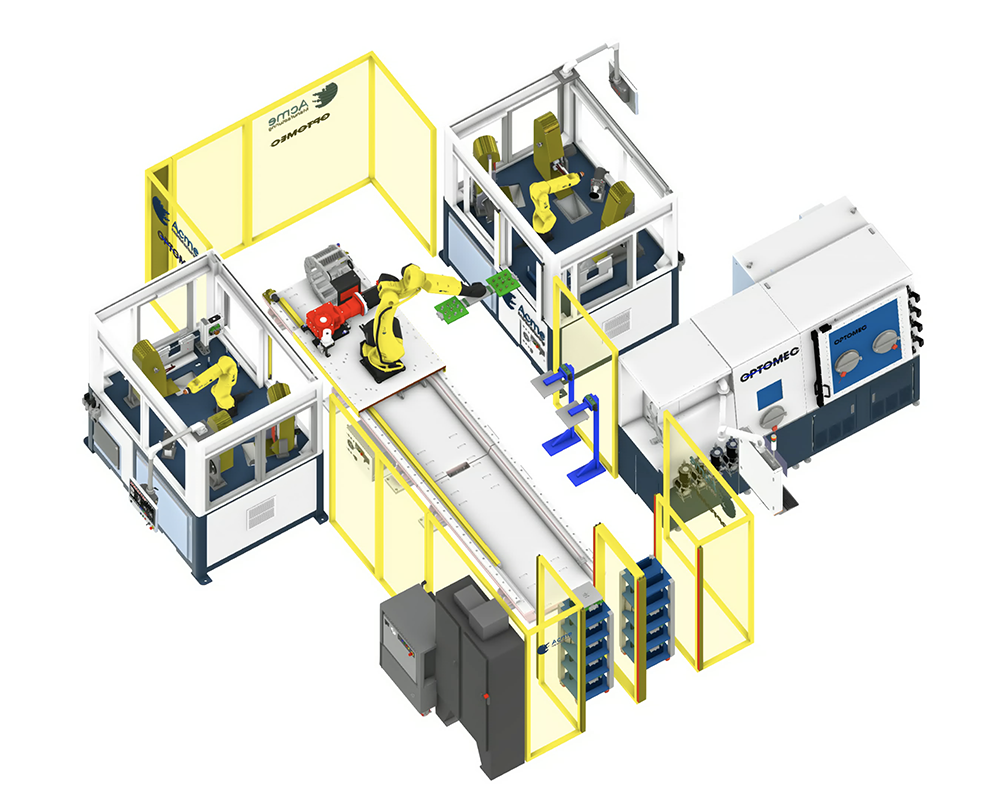New System Wields Additive, Robotics For Better Blade Repairs

Additive manufacturing specialist Optomec and robotic systems provider Acme Manufacturing have developed what they say is the industry’s first automated work cell for repairing aviation compressor blades made of titanium.
Development of the automated work cell took approximately two years, with Optomec and Acme seeking input from MROs and U.S. Department of Defense (DoD) repair centers. According to Jamie Hanson, Optomec’s vice president of business development, the collaboration brings together complementary technologies.
“Demanding repair requirements, driven by commercial and DoD repair centers, has led Optomec to enhance our directed energy deposition capabilities to enable high volume, high yield repair for compressor blades, an especially challenging objective for titanium parts,” says Hanson.
The system is primarily designed to restore titanium compressor blade tips that have been worn down during engine use, although it also has the capability to restore nickel compressor blade tips and repair damage to the leading edge of compressor blades. The automated work cell is comprised of three stations that enable blade tip grinding, 3D additive laser cladding and post clad finishing. It includes an automated pallet load/unload station, a pallet flipping station and a robotic material handling system. The work cell can also come with additional features, such as automated coordinate measuring machines and cleaning stations.
According to Optomec, the automated work cell provides several advantages over traditional repair methods for restoring titanium compressor blades, such as CNC machines and TIG welding. It says the system accomplishes blade finishing approximately three-to-four times faster than CNC machining or hand finishing, enables more consistent quality blade repairs than manual methods and can result in up to 70% lower costs. Optomec says the system can also address critical skilled manual welding and finishing labor shortages.
“By utilizing efficient and repeatable robotic finishing technology, we will be able to enable MRO engine repair centers to improve overall component quality and help lower unit costs,” says Fritz Carlson, president and CEO of Acme Manufacturing
The automated work cell is capable of repairing 85,000 titanium compressor blades per year and Optomec says its technologies are certified by civil aviation authorities worldwide. The system is commercially available now and Optomec says pricing is dependent on customer requirements.



